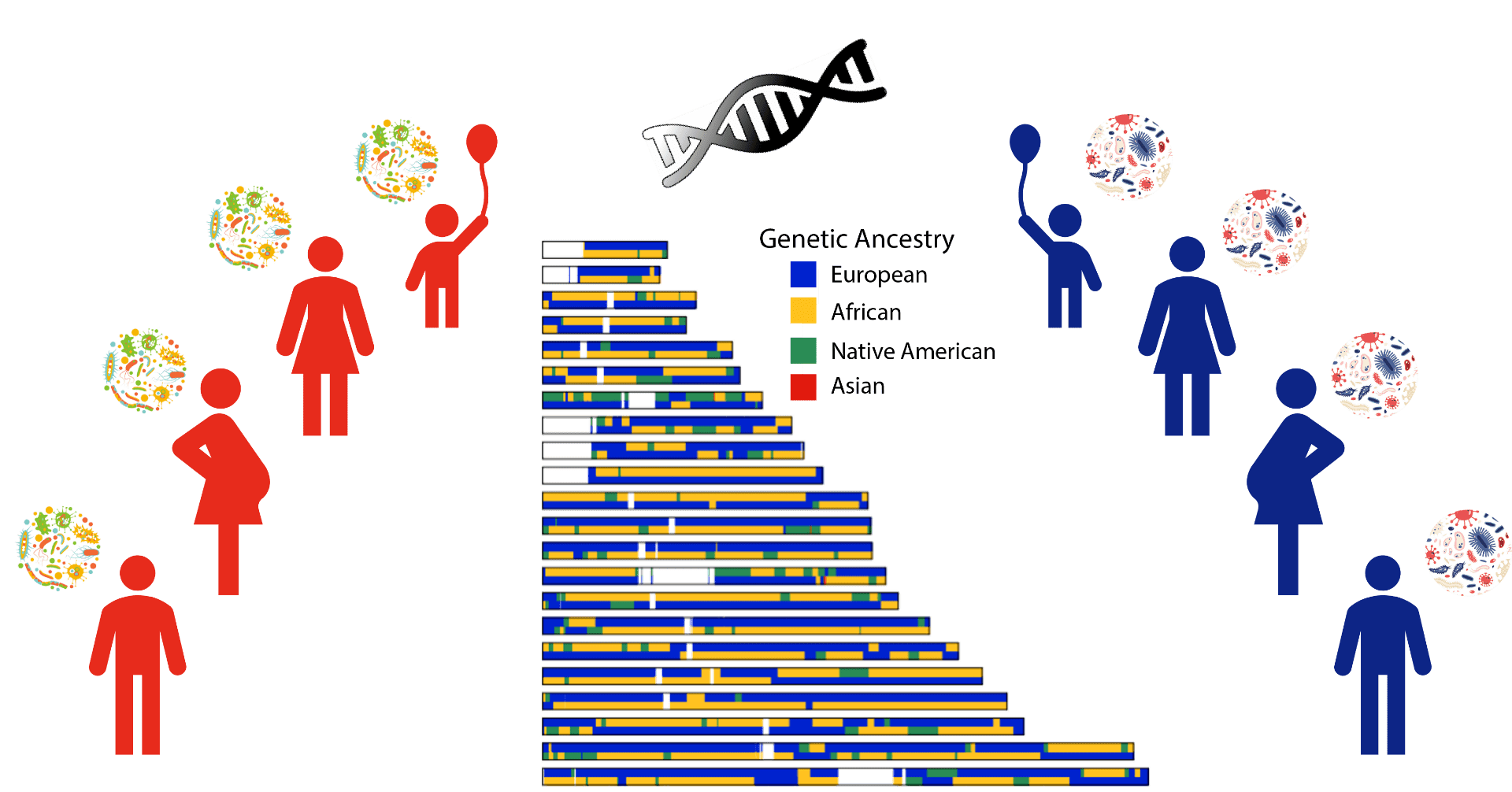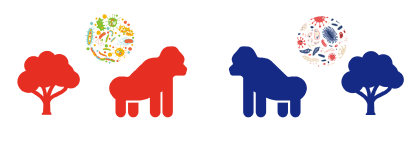Some of the questions we address in our research are:
- How have historical changes in host populations impacted the evolution of their dependent species?
- How do differences in microbiome composition modulate phenotypes in hosts?
- How important is homologous recombination for the evolution of traits which allow for species to change hosts or environments?
- How do demographics impact the accumulation of deleterious mutations in a population, and ultimately the fitness of individuals?


Our work requires a multidisciplinary approach that combines computational biology, population genetic/genomic analyses, phylogenetic reconstructions, functional genomics, mathematical modeling, and wet lab experiments to address these issues. Some of the questions currently addressed in our lab can be more thoroughly explored in our Current Research. If you are interested in any of these research topics do not hesitate to contact me.
Lab mission:
To address complex biological questions in an inclusive and supportive environment that cultivates curious, productive, and collaborative scientists.
Land acknowledgement
“The land on which we gather is the unceded territory of the Awaswas-speaking Uypi Tribe. The Amah Mutsun Tribal Band, comprised of the descendants of indigenous people taken to missions Santa Cruz and San Juan Bautista during Spanish colonization of the Central Coast, is today working hard to restore traditional stewardship practices on these lands and heal from historical trauma.”
News of interest

We have moved to University California Santa Cruz (UCSC)!!!! Come join us at the Department of Ecology and Evolutionary Biology of UCSC. Our lab will start in January 2023, come by and say hi if you are already in the area or send me an email (omcornej(at)ucsc.edu) if you are interested in joining the lab!
 Are host genetics involved in the evolution of their microbiomes? This is a controversial question at the moment. We are collaborating with Tomas Marques-Bonet at Universitat Pompeu Fabra to investigate the changes in the vaginal microbial composition of primates.
Are host genetics involved in the evolution of their microbiomes? This is a controversial question at the moment. We are collaborating with Tomas Marques-Bonet at Universitat Pompeu Fabra to investigate the changes in the vaginal microbial composition of primates.

We are excited to announce a collaboration with Dr. Jennifer Frankovich and the Stanford PANS Program. We have been working for more than a year to develop a research program focused on the identification of the microbial triggers that lead to the development of Pediatric Acute-onset Neuropsychiatric Syndrome (PANS).